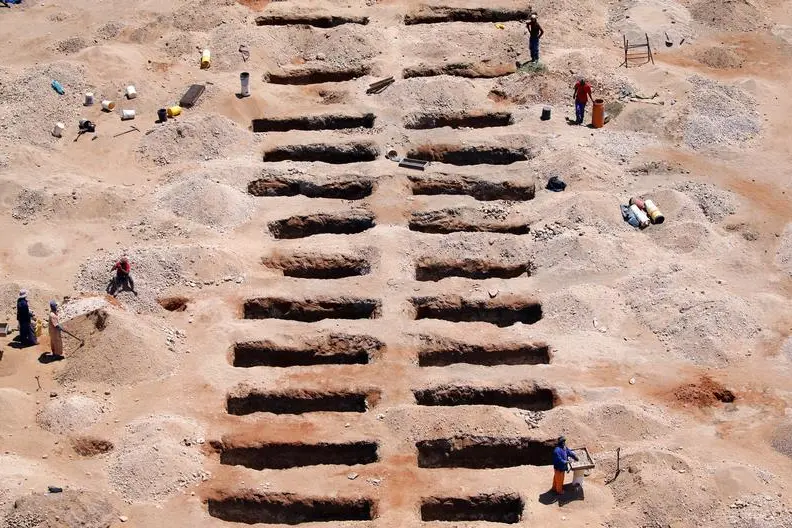PHOTO
With the assistance of team members specialising in a multitude of practice areas, an analysis of the sustainability / environmental, social and governance (ESG) related reports of nine large players in the South African mining industry was undertaken to track key ESG trends and, more importantly, to determine "what's missing", when looking at South African mining companies' current approach to ESG.
| Nomsa Mbere, partner, and Sebastian Steenkamp, associate at Webber Wentzel |
Of the common themes and key trends identified, potentially the most important theme that surfaced was the inter-related nature of each of the environmental, social and governance elements that together form the ESG landscape, and the pressing need for companies to adopt an integrated and holistic approach to operating in an ESG-targeted manner.
Environment
The most prominent environmental issue highlighted in the reports was climate change, and the various operationally disruptive permutations that may emanate from this overarching issue.
When looking at climate change, a key strategy that some (but not all) companies have adopted is an active buy-in to the circular economy. In short, this is a model of production and consumption that involves re-using, repairing, refurbishing and recycling existing materials and products for as long as possible. There are obviously trade-offs when looking at a system like this (for example efficiency and safety), but this, in our view, is a concept that warrants further exploration by players in the industry.
Most companies have also identified the need to move towards a diverse energy mix, coupled with a strategy to use more renewable sources of energy. However, what seems lacking currently is a coordinated approach towards engagement with government on the framework that regulates self-generation. This is becoming even more important, given that we are already seeing certain interpretative and practical issues from a regulatory perspective.
Lastly, we identified a real opportunity for mining companies to increase their collaboration with regulators, communities and conservation organisations, particularly on mine closure strategies.
Society
Although the mining industry still presents a potentially dangerous working environment for many employees, in recent years there has been a greater move towards automation (as a key driver of safety and efficiency) and, post-Covid-19, socially distanced remote working.
From a community perspective, a very unfortunate reality that many mining communities still face is a lack of access to proper education and employment opportunities, coupled with poor health and support facilities and infrastructure.
If not managed adequately or properly acted on, these issues can lead to serious dissatisfaction among communities and employees, potentially leading to social unrest.
We found that many companies have a holistic and comprehensive approach towards the health and wellness of their employees but lack the same approach for community members. Clearly, there are certain practical considerations (like resources, the Covid pandemic and interest groups, etc.) but there is a key ESG opportunity for companies to focus on rolling out holistic and pro-active health and wellness programmes to community members (aimed at mental, physical, and financial health).
Mine closure has become increasingly complex. Environmental, social, and economic impacts and the interrelationships between the three have resulted in mine closure moving from a mere technical process to one which is iterative and requires planning, consultation and thinking throughout the process to ensure that all stakeholders are ready for the closure and its aftermath. Internationally, there is a growing body of literature on the social aspects of mine closure and similar strides are being made in South Africa, where a draft Mine Closure Strategy was published for comment in 2021.
Governance
If well managed, the ESG focus of mining operations, coupled with technological advances and social investments, can play an important role in creating lasting benefits for mine host communities and the broader population. These benefits will endure beyond mine closure and will influence a company’s future financial performance and its overall social licence to operate. Against this background, our analysis showed that ESG initiatives are not being sufficiently integrated into the corporate strategy, particularly social closure plans.
The EU recently published a Proposal for the Directive on Corporate Sustainability Due Diligence, a step towards making sustainability a legislated feature in the global economy. The directive introduces directors' duties to oversee the implementation of the corporate sustainability due diligence and integrate it into the corporate strategy. There is also increasing pressure from investors and regulators for companies to disclose ESG performance and set targets. In this regard, improvements in gathering useful ESG data to assist in the disclosure and the decision-making process for investors is increasingly becoming critical. Standardised reporting of a company's ESG impacts and its sustainability measures will progressively be an important feature in companies' integrated reports.
Our analysis showed that there was an absence of measurable ESG goals. The King IV Guidance Paper on Responsibilities of Governing Bodies in Responding to Climate Change and JSE Sustainability and Climate Disclosure Guidance, as well as other global disclosure standards, will help to strengthen reporting in these areas. However, this guidance should be coupled with investments in new technology and the relevant software to process the collected ESG data so that a company has the relevant information to report to its governance structures, shareholders, and potential investors. Adequate information will enable stakeholders to quantify the ESG impact of their investment and evaluate the company accordingly, giving the company a competitive advantage over its competitors.
All rights reserved. © 2022. Bizcommunity.com Provided by SyndiGate Media Inc. (Syndigate.info).





















